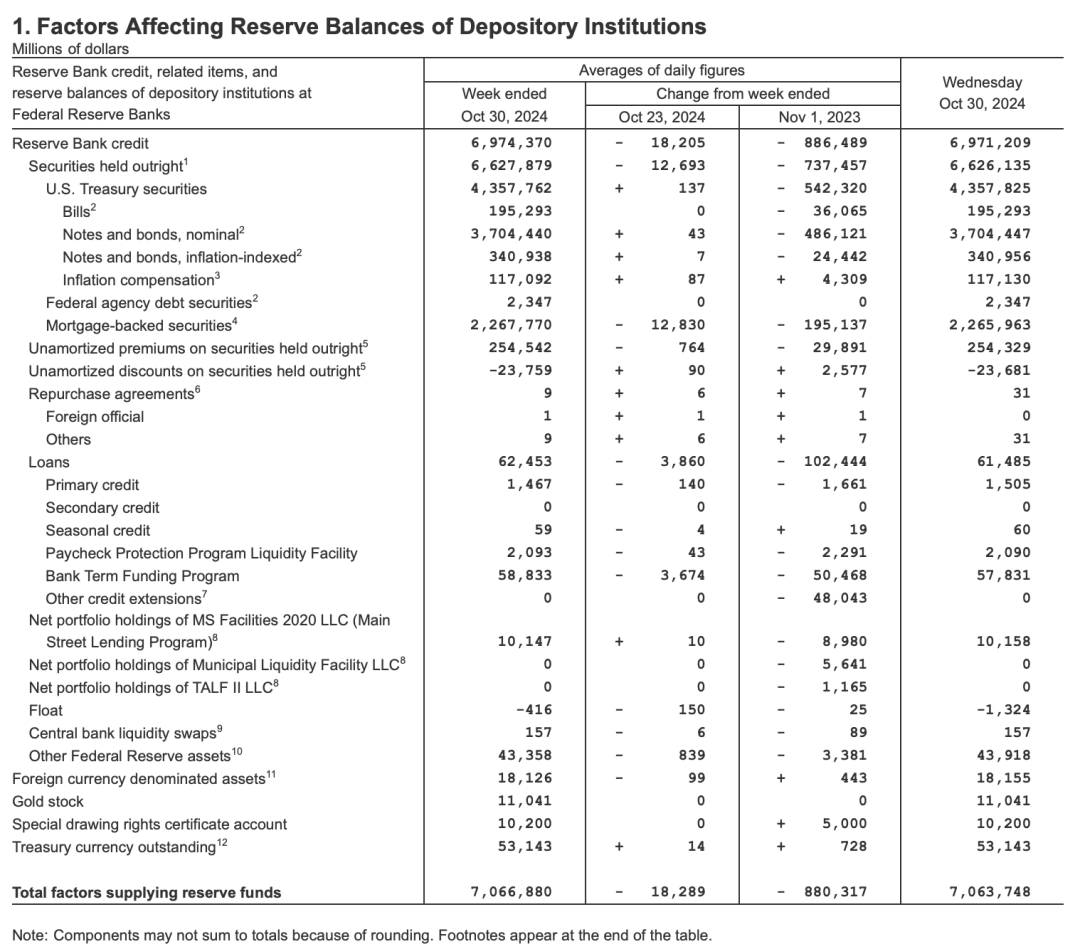I have been following the election a lot recently and haven’t had the energy to update. Now that the winner is decided, I’ll post a long article right away.
After today, Trump will become the most powerful president after Roosevelt. It was during Roosevelt's tenure that Fort Knox became the United States' strategic gold reserve base, and Trump also declared that Bitcoin would be used as the United States' federal reserve.
In this US election, Trump defeated Harris in the popular vote. As long as the electors are loyal to the will of the voters, Trump has already obtained more than half of the 538 electoral votes. If nothing unexpected happens, Trump can return to his loyal White House on January 6, 2025.
Not only that, the Republicans have already occupied 51 seats in the Senate, and the two parties in the House of Representatives are expected to form a balance of power. Even if the Republicans cannot control it, the gap between the two sides will be in single digits. And thanks to Trump's multiple nominations of justices during his first term, the current ratio of conservative VS liberal justices in the Supreme Court is stable at 6:3, which even surpasses President Roosevelt because he did not have complete control of the Supreme Court.

The last time the miracle of two non-consecutive elections happened was 132 years ago during the Cleveland era. After November 5, the Wikipedia page needs to be modified. Trump has achieved the second-best achievement in history.
Looking back at the history of Rome’s development, the Republican Party has become Trump’s party, and the first unification of the three powers has given him a power base that previous US presidents did not have. The last time, Roosevelt laid the foundation for the alliance between the US dollar and gold until the collapse of the Bretton Woods system. This time, will Bitcoin also start this historical process?
Web3 institutionalization process begins
The system means stability in the big Eastern countries, but in the eyes of Trump and Musk in the big Western countries, the System, like the Deep State, represents corrupt interest groups that need to be eliminated. That is why Musk has personally joined the game, hoping to become the helmsman of the Department of Government Efficiency (DOGE) and add new catfish and vitality to the existing political correction mechanism.
This is not a new idea. The birth of the FBI, the emergence of the IRS, and even the establishment of the CIA are all new variables that cannot be maintained by the existing route. It is unnecessary to believe that cryptocurrency and Bitcoin will truly change the United States. The only thing we need to care about is how the US dollar and gold are "Americanized", which is also the so-called institutionalization, that is, the new resistance forces are absorbed as part of the existing ruling order.
The End of the Free Dollar
The issuance of US dollars has roughly gone through three stages: the Continental Currency in the War of Independence era to the establishment of the Federal Reserve in 1913, the gold standard from 1879 to 1944, and the credit currency era after the 1970s.
As early as the American Revolutionary War, the Continental Army began issuing US dollars, but at this time the US dollar was more of a war bond. If you bet that the Continental Army would win, just hoard US dollars. Later, during the Civil War, the federal government issued a large number of "greenback dollars". The same reason applies, with a strong war bond color, while the Southern government issued cotton bonds. In the end, the industrialized dollar defeated the plantation owners' cotton.
Next came the Bretton Woods system to complement World War II, in which the U.S. dollar was pegged to gold, and other countries' currencies were pegged to the U.S. dollar. The double peg mechanism was also a de facto gold standard mechanism, but the system officially disintegrated after Nixon announced that gold could no longer be exchanged for U.S. dollars.
The above is the history of the US dollar that we are familiar with. Today's US dollar is actually an exchange certificate for US Treasury bonds. The US Treasury issues bonds, and the Federal Reserve purchases them and issues them as reserves for US dollars. Dual currency mechanisms such as Luna-UST are nothing more than poor imitations.

The free banking era of greenback dollars from the 1820s to the Civil War was not unlike the current cryptocurrency boom, with a large number of banks issuing banknotes on their own, essentially promissory notes redeemable on presentation. Even if the banknotes issued by each bank had the same face value, they were not interoperable. At one point, there were more than 70,000 types of "dollars" on the market.
To a considerable extent, the chaos in the US dollar system was also one of the causes of the Civil War.
This kind of chaos in the issuing entities naturally cannot continue to exist, just like the regulatory thinking on cryptocurrencies today. If there is no management, even gold will be sold at prices as high as the moon and as low as the underworld, and the economic system will be under the Brownian system for a long time.
Based on this, the United States introduced the National Bank Act in 1863 and established a number of national banks and the Office of the Comptroller of the Currency (OCC). However, it should be noted here that the US government did not deny the qualifications of other banks to issue banknotes, but conducted targeted "reviews" and supervision, just as the SEC is conducting a "securities issuance" qualification review of various cryptocurrencies, but it does not deny your cryptocurrency issuance qualifications. The characteristics of US management are hidden in history.
From then on, the US government began to intervene in the dollar on a large scale. Until the economic crisis of 1907, JP Morgan played the role of savior, and thus had the hard power to work with the US government. In 1913, the Federal Reserve Act was introduced, and the Federal Reserve (Fed) was born, and the free dollar came to an end.
After Bitcoin landed
Zhang Hua was admitted to Peking University, Li Ping entered a secondary technical school, and I worked as a salesperson in a department store. We all had bright futures.
There are only two types of cryptocurrencies in the world, Bitcoin and others. In Trump's view, the US dollar needs to change its anchor, and Bitcoin will be a better anchor than US bonds. At least it can be used as one of the supports like gold. The only problem is that the price of Bitcoin cannot accommodate tens of trillions of liquidity. If each Bitcoin is worth one million US dollars, it is more likely that the US dollar will depreciate.
Let's do a simple math problem. The current size of the U.S. debt is 35 trillion U.S. dollars, and the current circulation of Bitcoin is about 19.1 million. Doing a simple division, to solve the U.S. debt crisis, the price of a single Bitcoin needs to reach 1,832,460. The current 75,000 U.S. dollars is just an appetizer, and there is still a 24-fold increase.
A more rational choice is that Bitcoin does not need to become a reserve of the US dollar like gold, it only needs to solve the interest on US Treasury bonds. According to estimates, the current annual interest on US Treasury bonds is about 1 trillion, which is almost half of the market value of cryptocurrencies, or approximately equal to the market value of Bitcoin. However, this still requires the US government to control all or most of the Bitcoin. Regardless of whether the US government can do this, assets without liquidity are worthless.
Image caption: Bitcoin distribution map Image source: River Capital
Currently, the US government holds about 1% of Bitcoin, but like JP Morgan to the Federal Reserve, most of the various BTC ETFs are backed by US capital. If their 5.2% share is counted, plus Satoshi Nakamoto's 4.6% passive lock-up, then the US government theoretically has the ability to control or influence about 10% of the Bitcoin price, which is already considered a super whale.
Before 2034, there will be about 10 trillion U.S. debt interest. Considering that Trump's term is only 4 years, if Bitcoin can truly be used as a reserve of U.S. dollars, then it only needs to solve the problem of about 5 trillion interest. Then the price of a single Bitcoin will only need to reach 261,780 U.S. dollars, which is about 3 times the current price. This is possible as long as we adopt the attitude of "I don't care about the flood after I die".
The entire Web3 will also enter the American era. The last Internet dividend produced fruits in Silicon Valley, but no one knows how it will proceed this time.














